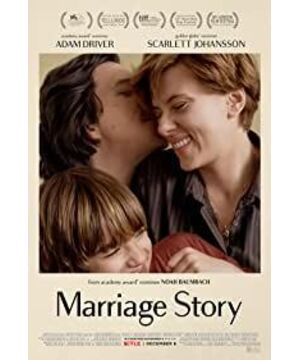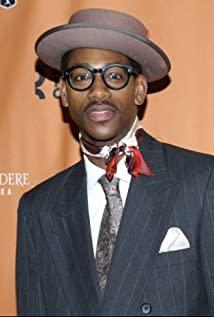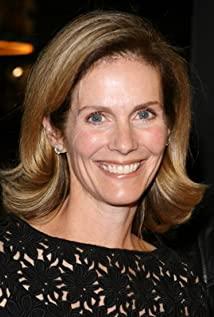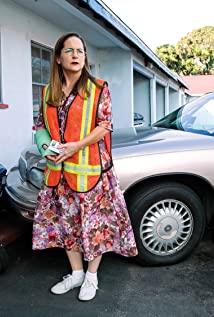There are too many Chinese and foreign works about divorce. All the last battles in the marriage are essentially losing to both sides, and it seems that there is no room for new ideas. The female sacrifices, patriarchal suppression, and derailment elements in the first half of "Marriage Story" are a bit old-fashioned to me. Although necessary, they are not new. In addition to the seemingly clichéd "main theme of divorce story", the first half of the film even seems to be an uneven bowl of water, and the embarrassment of the talented male protagonist is too much and the performance is too small, which makes people feel sympathy. The female protagonist does not seem to be close to humanity, and at the same time she has turned her back, she even carries a trace of imperceptible weakness. On the one hand, he dragged the male protagonist into the water to death, and on the other hand, he looked forward and backward, acting as if he could not be cruel.
However, just as I kept reaching out to look at the progress bar, the director stretched out his hand to throw me off guard, and thrust me unceremoniously in the chair. After the situation changed, the male lead came to see the child and found that the son had retrieved the letter written by the mother during the separation and mediation. He turned to read with his son. When his son read something interesting, he smiled warmly, then turned to himself and said "I fell in love with him immediately." His lips trembled, his voice choked, and the sadness was uncontrollable. I was also sad with the male lead here, and my emotions sank to the bottom, almost crying. However, after the emotions passed, I suddenly reacted: "I fell in love with him two seconds before I saw him. I will love him forever, but this is no longer important." This line appeared at the beginning of the letter content monologue. NS?
The answer is of course no. I was shocked to realize that the ending was like "Love Letters", suddenly filling up the B side of the story, making the whole story suddenly turned upside down at the end. Why the heroine stubbornly refused to read the letter at first was not because the hatred in her heart was overwhelming, but because this letter confessed the fact that she still loved the hero. On the other hand, the male protagonist is calm and generous, as if divorce can be controlled by reason, and the female protagonist runs out of control. After the stage play before the separation of the male and female protagonists ended, the director hinted through the camera that the protagonist was suspected of having an extramarital affair, so the protagonist was extremely angry and immediately left the room to go home. But even so, she still cared about the male protagonist's evaluation of her, and used this to cover up her desire to get along with the male protagonist more, turning her face and crying into tears. At this time, the mood of the male protagonist is still only at the level of frustration, and he is still sober-minded that the state of the female protagonist is not engaged enough. The female protagonist left New York and recalled the happy moment when she sought the help of a divorce lawyer, but also pointed out that the divorce was due to the burying of personal values, the male protagonist's indifference to the female protagonist's state, and even a tough blow. However, this conversation also points out the reason why the heroine suddenly decided to find a divorce lawyer: she suspected that the heroine was cheating.
At this point in the story, the heroine has truly retreated from the facts, and began to force the hero to face the facts. And many years of living habits have made the male protagonist habitually think that the female protagonist will regress again, so he has always stubbornly thought that the female protagonist will return to New York after the play in Los Angeles. The strength in the family for many years has also caused him to have a little understanding of his son's state. From the following plot, we can learn that he does not know that his son prefers Los Angeles, does not know that his son no longer likes mathematics, does not like green plants, and gets confused. The names of doctors and coaches fully show the absence of father in the family. At this time, he was ignorant and was dragged into a divorce by the heroine, and he ran across New York and Los Angeles. And the heroine always contradicts her attitude and behavior, and the reason is nothing more than her feelings for the hero. Although the first lawyer looked confused, he was actually right and pointed to the core of the problem: in the process of divorce lawsuits, everyone puts too much emphasis on winning or losing, but they have forgotten that in the end, men and women must solve the problem together. It was also at this time that the male protagonist's comments on the female protagonist's hairstyle and hair color made the protagonist suddenly realize that the male protagonist had not paid attention to it before, and it also made her disappointed with the male protagonist again and completely lost confidence. At this time, the first private reconciliation took place. After learning that his son might not be able to live with him, the male protagonist broke out and changed lawyers. The reconciliation between the two parties may disappear and the face was torn in court. There was a famous 10-minute quarrel scene. Someone analyzed this famous scene, and I very much agree. But although this passage seems to be more selfish, the male lead thinks that the female lead forced her into a desperate situation. It is inevitable that there will be more cruel words. In the final analysis, the quarrel still hurts both sides. The male protagonist collapses and cries, and the female protagonist feels sad. It should also be at this time that the heroine is deeply aware that the two parties are irreconcilable, and the damage has been so deep that no one cares about love or not.
As a digression, this paragraph is actually the climax of the story. The two lawyers intervened in the negotiation until the two faced each other, and the story really reached its peak. The director made good use of details. When the heroine said, "If someone comes to censor me, I will probably never get custody." The hero nodded thoughtfully, and the heroine immediately said that I was joking. The gap between the two parties is already full of calculations, and the rift is irreparable. The hostess is also emotional, "Baby let me finish, I always say this sentence" to show that the two sides are not communicating smoothly. Compared to the rotten details in the climax scenes, I prefer the clips inserted by the director in several climaxes. The expression "break up or be a friend" paved the way for the two to become friends in the future. In fact, it also played a role in regulating the rhythm, and the content and methods were suitable.
Then came the moment of embarrassment for the male protagonist. In order to deal with the observer, he stumbled and acted inconsistently with his son, and in the end he accidentally scratched himself. Only then did the male lead realize his lack in the process of raising his son, and also understood the true meaning of his son to him, he should never be a trophy. At this moment, the lawsuit ended with the male lead giving in, but the female lead still believed that there was no need to rush to extermination. At this time, the director used intertext very cleverly. The hostess and family and friends held a party at home and sang happily. The host and friends drunk and sang alone in the bar. But no matter what, the dust settled, and both parties started a new life with a song. As soon as the camera turns, the male protagonist arrives home again, the female protagonist has a new love, and she is no longer the favorite of the former mother-in-law. The male protagonist stopped insisting and moved to Los Angeles to work and live for his son. The male protagonist saw the pictures on the wall and he no longer belonged to his family, but at this moment, he shed tears when he read the "mediation evaluation book" of the female lead, and the female lead was also sad on the door frame. "At that time, the only way was common." Everything in the letter is in the past. Even if the director once again showed the friendship between the male and female protagonists with a shoelace plot, the two sides still parted ways.
The whole movie is based on the male protagonist's perspective. The A side shows the divorce process, but at the end of the story, it makes people realize that there is another female protagonist's perspective in the B side story. When you finish watching the ending, look back again, but it looks like a new story. The male protagonist's perspective seems to be a divorce process, with only the A side of the marriage, full of lies and hurt. But the B-side of the heroine implies love and struggle. AB is the same, this is a complete marriage story. Whether it is male power or feminist power, in my opinion, this movie does not want to favor either side too much. It only tells a marriage story.
View more about Marriage Story reviews











